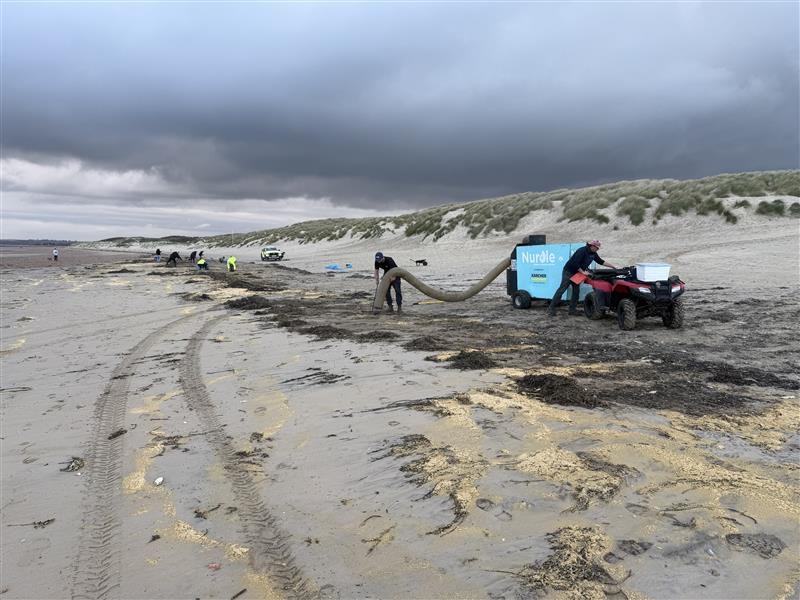VOLUNTEERS who are helping in the aftermath of the pellet pollution incident that hit Camber and other parts of the district’s coastline recently have been praised by Rother District Council.

The authority says many people are giving up their valuable time to help clean up beaches and coastal areas affected by millions of pellets or bio-beads that have washed ashore.
Council Leader, Doug Oliver, said: “Once again, the people of Rother are going above and beyond to help protect their environment, and we are extremely grateful to everyone who has volunteered so far.
“The volunteers have made a real difference to the clean-up operation and it’s great to see them working alongside our RDC coastal team, plus Strandliners, and Nurdle – our specialist, non-profit company employed by the Council to support the operation.
“If anyone would like to help, all volunteer activity is taking place exclusively at Camber beach, where it is being overseen by council officers for beach and tidal safety reasons . Volunteers are welcome seven days a week and should arrive at Central Car Park, Camber, at 10:00am for a briefing by our officers and to collect PPE and equipment.
“We’ll notify people of any changes to these arrangements, including when volunteer support is no longer required, through our usual communication channels.”
“Although for beach and tidal safety reasons the Council is not asking volunteers/members of public to visit any beaches other than Camber, if you happen to notice biobeads elsewhere during your normal activities, please report it to the Environment Agency on 0800 80 70 60 (free to call), quoting reference: 2440833.
“You can also report findings online at: www.gov.uk/report-water-pollution,” he added.
The clean-up operation at Camber started on Thursday 6 November after the first reports of the bio-beads came in. Southern Water has stated that it is highly likely that the beads came from their water treatment plant at Eastbourne.
Nurdle’s expert advice is that the cleaning operation with their specialist equipment is most effective following Spring tides which occur twice a month and so work will continue after each Spring tide over the coming weeks and months. This will allow for as much of the remaining pellets – and any new amount that may wash ashore – to be cleaned up.
Published: 16th November 2025

